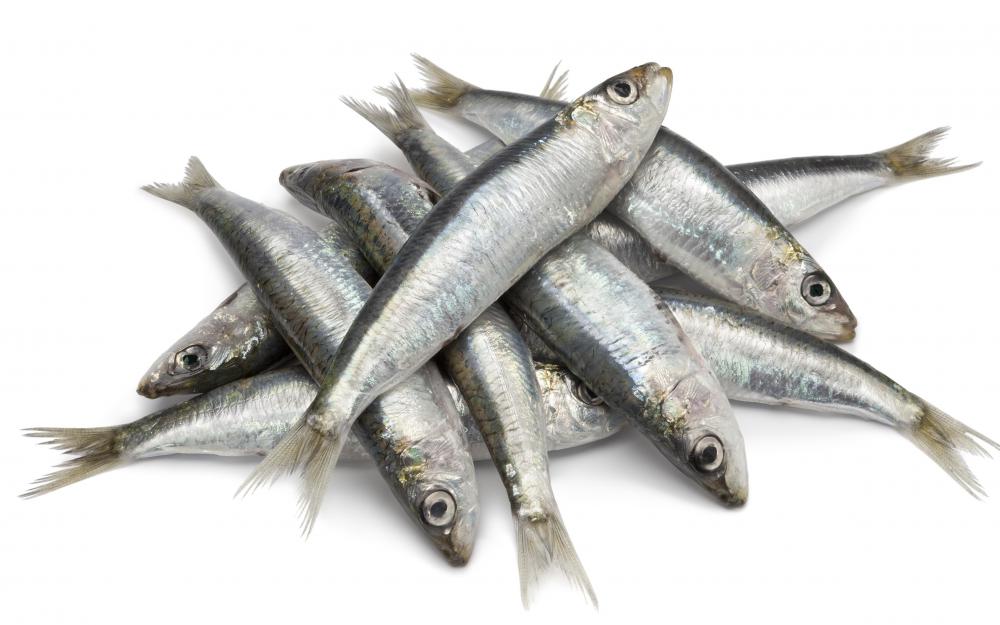At WiseGEEK, we're committed to delivering accurate, trustworthy information. Our expert-authored content is rigorously fact-checked and sourced from credible authorities. Discover how we uphold the highest standards in providing you with reliable knowledge.
What is the Connection Between Fish Oil and Vitamin D?
The connection between fish oil and vitamin D involves their connection to bone health and the prevention of degenerative diseases like cancer and diabetes. Vitamin D is often naturally found in cod liver oil, a fish oil that includes many beneficial fatty acids which nourish the growth and development of the body. Both fish oil and vitamin D contain natural compounds that are essential for the body, yet are quite deficient in the diets of many individuals. Supplementing with a high quality fish oil, like cod liver oil, can help the body receive essential fats alongside vitamin D.
Fish contain some of the highest amounts of natural omega-3 fatty acids, which are essential anti-inflammatory fats required by the body in large amounts every day. Many individuals who eat a diet high in processed foods, oils, fats and carbohydrates receive far more omega-6 fatty acids, or pro-inflammatory fatty acids, skewing the natural ratio between omega-3 and omega-6's. Not only do fish contain these natural fats, but many also contain natural vitamin D, a vitamin also needed in large amounts by the body to help it function properly. Without vitamin D, which is also deficient in many individuals, the body can quickly degenerate into poor health.

Most fish oil supplements contain natural vitamin D, making fish oil and vitamin D compounds that can work together to help promote human health. Both fish oil and vitamin D can provide numerous benefits, such as increasing the ability of the immune system to fight off infection, as well as promoting proper bone growth, development and repair. Many children benefit from supplementing with a high quality fish oil that contains natural vitamin D, as the fatty acids and the vitamin D help in the metabolic processes of growth. One of the other benefits of fish oil is that it can help prevent and even fight osteoporosis, according to some studies, as the vitamin D helps bring calcium into bones.

Often, fish oil and vitamin D will be joined in a supplement. Krill oil, a powerful fish oil that is also lower in mercury, contains very low levels of vitamin D compared to cod and sardine. Depending on one's own preferences, more than one oil can be taken to greatly impact health in a positive way. Fish oil and vitamin D can be quite helpful in a preventive and natural approach to health care for all ages, as studies have shown that both can help reduce the chances of disease.
AS FEATURED ON:
AS FEATURED ON:













Discuss this Article
Post your comments